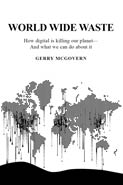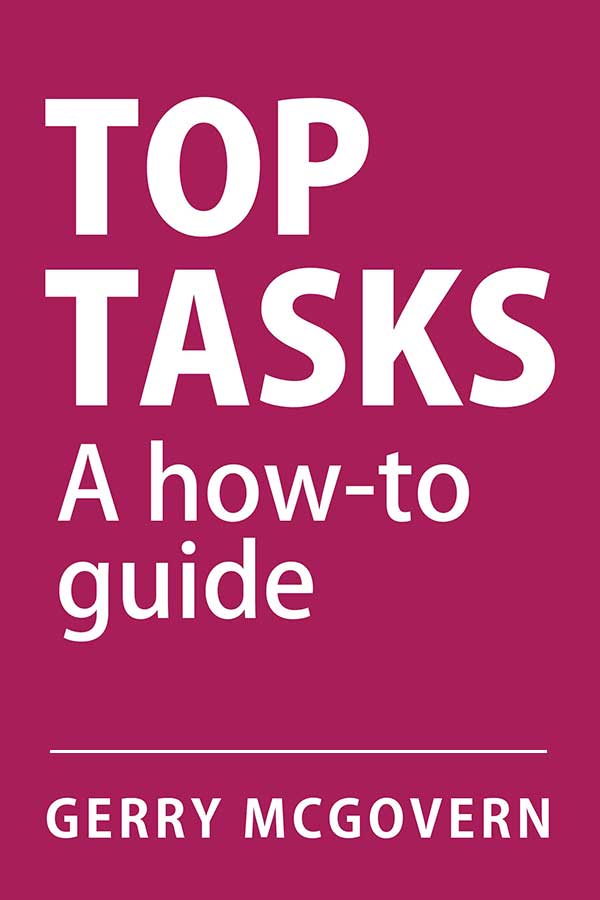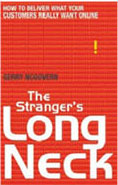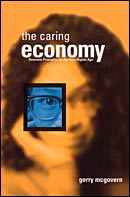Chapter 1 (excerpt):
The Caring Economy

In The Digital Age, it pays to care.
Let’s face it, many of the products made today are becoming commodities with the same basic components and performance levels. How different is one bank ATM machine from another? How different is the performance and reliability of one car from another? Nearly all computers have ‘Intel Inside’ and many are made from the same essential parts.
How will business differentiate itself in a world becoming increasingly commoditized? In a world that is becoming increasingly automated? For some products and services the lowest price will always be the focus. But there isn’t an economy in history that is ruled by price alone.
To differentiate itself, a company can start by using the Internet to engage with its customers more, seeing them as partners so as to develop solid, long-term, mutually profitable relationships. By developing products that truly match customer needs. By focusing on service. By being friendly and helpful.
Because human relationships cannot be automated, cannot be commoditized. Machines, at least for now, cannot be programmed to care. People care. And let’s not forget, in this haze of technological change and often illusory promise, it’s people who buy our products and services.
Why do we do the things we do? Why do we get up in the morning? Why do we go to work? Why do we save? Why do we buy and sell things? What are the things that make us happy? What do we want from life? What do we really care about?
Today, as we move from the Industrial Age to the Digital Age – as we cross from one age to another – it is important that we ask these time-honored questions. In fact, it is vital.
It is vital that we are able to look at the world with fresh eyes and are willing to learn new things, new business practices. It is vital that we take nothing for granted. That we assume nothing. That we question everything. That we particularly question the things that we believe to be absolutely true.
We should examine the philosophical foundations of our lives and not be afraid to find that they are crumbling. We should be ready to build new ones. Because we can. Because we must. Because there is no other choice.
The Caring Economy is based on a number of fundamental beliefs: These beliefs are:
- That The Digital Age demands new thinking and a new philosophy
- That The Digital Age requires a new set of business principles, governing everything from research and development to customer interaction
- That The Digital Age is about technology finally becoming transparent and people becoming paramount
- That in The Digital Age people have never been more educated, self-confident and empowered
- That people care. They care about themselves. They care about their family, their friends, their community, their country, their environment
- That business needs to care about people if it wants long-term success
- That the Internet is a revolution primarily in communication, not technology
The Caring Economy is not a book about computers or the Internet. It’s not about information technology and e-commerce. It’s not about more bandwidth and faster processors. It’s not about Digital TV and video-on-demand. It’s not about nerds and hackers. It’s not a book about cost savings and downsizing and automating people out of the picture. The Caring Economy may cover and explore all these technologies and issues, but it is not about them.
It is rather a book about people (business people and consumer people) and how we all interact on the Internet. It’s a book that explores the relationship between people and the tools they make and use. It’s about how people are impacted by and impact on new technologies and issues. It’s a book that seeks to establish some philosophical foundations and basic principles for living in the Digital Age. It’s a book about how we all need new attitudes, new rules and new business principles for success in a Digital Age economy and society.
It’s a book that puts forward the belief that community and commerce are inherently intertwined; that you can’t have one without the other. It goes deep into the meaning, function and potential of communities. It explores the whole meaning of what a ‘network’ is, what ‘networking’ is about and how best to live and work within a networked environment. The Caring Economy believes that perhaps the fundamental principle for success in The Digital Age is to Think Network.
The Caring Economy is about attempting to give a map to people on a journey to a new age, a new world. It is saying to the business person not to get so scared, not to overreact. That things are not all that different. That when it all boils down, The Digital Age will still be about people communicating, interacting and trading with other people.
The Internet is one of the most important developments in human history. I feel very lucky to be alive at a time of such a momentous change.
The Internet is not about technology, it’s about people communicating, people offering and searching for information. Technologically, the Internet is very basic. Electronic mail (email), the most powerful and most used tool the Internet offers, does not require powerful computers to be sent or received. In many ways, the Internet slows, if only temporarily, the onwards and upwards race to make faster chips and fatter software.
Think of communication for a moment. Think of language, writing, books, radio, television, the Internet. Whenever there is a major change in communication, there is a major change in society.
The marriage between computers and communication is long overdue and badly needed. You have heard of the phrase, ‘Art for art’s sake.’ Well, I think it is has very often been true to say of the computer industry that it has followed an ethos of, ‘Computers for computers’ sake.’
In the early years of computer development the idea that computers would be used for communicating would have been anathema to many computer engineers. The concepts of the ‘end-user’ and ‘computers-made-easy’ were simply not on the horizon of people developing computer hardware and software. Computers were designed to solve the ‘great’ problems of the world. They were not designed to be understood or used by us mere mortals. They were designed by computer engineers for other engineers.
The general result of this ethos for the last thirty/forty years has been an information technology industry focused on the machine and the process, rather than on people and the needs of people. It’s been an industry focused on costing cutting and getting rid of people, rather than growth and empowering people. Thus, we have had a flow of hardware and software that you needed a degree to understand. People were supposed to adapt to technology, rather than technology adapting to people.
We never accepted buggy cars and buggy washing machines, so why do we have to accept buggy software? A general excuse is that software development needs to be rapid and constantly moving forward. Why? Could it be possible that the computer industry has deliberately created a technology trap? That faster chips and fatter software feeds onto itself leaving business and consumers running to stand still? That it is really the computer industry that needs new computers and new versions of software to feed its voracious bottom line?
It is not surprising the Internet was not invented by Microsoft, Intel, IBM or any of the other major players in the computer industry. It is not surprising that while born out of a military need, the Internet evolved and grew strong as a result of multidisciplinary co-operation and sharing. It is not surprising that the Internet has thrived as a result of being bare bones but useful, rather than being a multimedia feast for the senses.
The Internet has taught us all a valuable lesson: that simple – in the form of email – can be the most powerful of all. With its emphasis on communication and information the Internet is changing – and will even more fundamentally change in the future – how those who design computers see and think about them. It will change how those of us who use, or who are about to use, computers, see and think about them. As a result of the Internet, computers are now truly engaging with consumers, truly engaging with society.
The Internet opens up the possibility for the computer to be a tool for people to use, rather than a machine that is obsessed with computing things, automating things and replacing people. The Internet is for young people, for old people, for people at work, for people at play. The Internet is for people who want to find information on a rare illness, for people who want to check up stock quotes and sports results, for people who want to buy and sell things, for people who want to find out about sex and sexuality, for all sorts of people in all sorts of places. The Internet lets us communicate and raise our voices.
I remember once having a conversation with a senior executive from what used to be Digital Corporation. He was nearing retirement and he got into telling me stories about his career. He told me that when he was younger he worked for a very enlightened company who regularly sent him and other executives off on courses. One of the courses dealt with how people were going to manage their increased leisure time in the fast approaching Leisure Society. We had a good laugh at that one.
For all their power, all their potential, all their promise, computers have not delivered the Leisure Society. Quite the opposite. Those who have jobs today work harder and longer than they ever did. Computers have not exactly driven up productivity growth either. In fact, until the last few years, American productivity growth, for example, had been more than sluggish over a thirty-year period. And where is the paperless office?
If the computer industry has not delivered the Leisure Society, what has it delivered? Perhaps it has delivered the Adrenaline Society; the society that never sleeps, the society that is constantly bringing out new versions of itself, that never lets its products (or its people) get old.
I don’t think the rest of the world is all that interested in the Adrenaline Society. Sure, we all like a bit of the excitement. However, by and large I believe that most people prefer a Caring Society. Because that’s the type of society most people already live in and I believe want to continue to live in.
I mentioned to a couple of associates in the computer industry that I was calling this book The Caring Economy. There was a silence and then a look of puzzlement. “Caring is such a weak word,” one person replied to me. I find it interesting that some feel that to care is a sign of weakness.
We are an intelligent, often logical and driven species; that is accepted. We are also a sentient species. We feel. We care and like to be cared for. We care about our food, we care about our clothes, we care about our family, our community and nation. We care about our children and we’ll work hard to give them a good education and the best possible chance in life.
We care about the cars we buy and are seen driving. We care about relaxation; we go to the movies, sports games, we go on holidays. We care about the environment and try to buy products that are not harmful to it. We care about the clothes we wear. They’re about much more than keeping us warm; they’re about making us look good and feel good.
Yes, we belong to a Caring Society. We care about ourselves and we like to think that others care for us. When we are sick and old we want and need to be cared for.
Having said all that, it has to be accepted that we live in a society where caring is increasingly self-centered. Families are not as strong as they used to be. People used to rear large families who would then look after them in old age. Now they have fewer children and invest in pension plans.
Communities are not as strong as they used to be. Life-long employment created stability and was thus good for holding communities together. Twenty years ago if someone told you they had worked with a certain company for thirty years and would be loyal to that company to the end, you would have held them in high esteem. Today, such statements would be met with raised eyebrows, if not open contempt. Downsizing has taught us that it’s every worker for themselves.
Today, loyalty is for fools. The educated consumer sees the so-called ‘relationship’ marketing and its “Dear Gerry” personalized letters as no more than Trick Marketing. Consumers are suspicious, and rightly so, of marketing efforts that try to get personal with them. They don’t get warm feelings when asked to have a relationship with a word processor’s mail-merge function.







